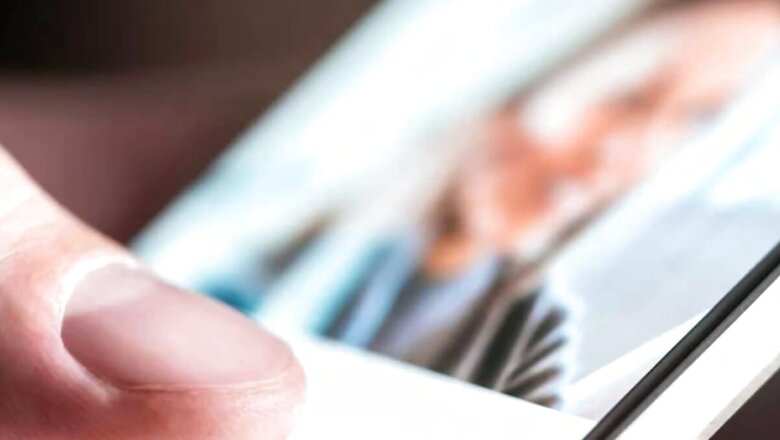
views
In the digital age, dating apps have revolutionized how people connect and form relationships. While these platforms offer convenience and accessibility, they also come with significant mental health challenges. Jeevika Sharma, relationship expert highlights several reasons why dating apps can negatively affect mental well-being, emphasizing the importance of a balanced and mindful approach to online dating.
Constant Rejection
One of the most prominent issues with dating apps is the frequency of rejection. Constantly facing rejection can lead to feelings of low self-worth, self-doubt, and anxiety. For many users, the repeated experience of being overlooked or dismissed can erode self-esteem, making it difficult to maintain a positive self-image.
Unrealistic Expectations
Dating apps often showcase curated profiles, where users present the best versions of themselves. This can create unrealistic expectations, leading to disappointment when real-life interactions don’t match the idealized online persona. Additionally, the presence of fake profiles and scams on these platforms can further complicate the experience, making it essential for users to stay vigilant.
Objectification and Dehumanization
Reducing individuals to mere profiles and pictures can foster a culture of objectification. This dehumanization strips away the complexity and depth of potential partners, leading to superficial judgments based solely on physical appearance or a brief bio. The result is a diminished sense of empathy and understanding in the dating process.
Anxiety and Stress
The pressure to present a flawless online persona, coupled with the fear of missing out (FOMO) and the need to constantly check the app, can lead to significant anxiety and stress. The pursuit of perfection in an online setting often becomes exhausting, leaving users feeling overwhelmed and mentally drained.
Comparison and Envy
Dating apps can trigger harmful comparisons, as users often find themselves measuring their worth against others on the platform. This can foster feelings of envy, insecurity, and decreased self-esteem, particularly when it seems like others are more successful in their dating endeavors.
Ghosting and Ambiguity
The phenomenon of ghosting—where someone suddenly cuts off all communication without explanation—has become increasingly common in online dating. This, along with other forms of ambiguous communication, can lead to emotional distress and confusion, leaving individuals questioning what went wrong and feeling uncertain about future interactions.
Overemphasis on Physical Appearance
Many dating apps prioritize physical appearance, reinforcing societal beauty standards that can contribute to body dissatisfaction. This emphasis on looks often overshadows other important qualities, leading users to feel pressured to conform to unrealistic beauty ideals.
Lack of Meaningful Connections
Despite the sheer number of connections that dating apps can facilitate, the quality of these interactions often falls short. The superficial nature of many exchanges can leave users feeling isolated, disconnected, and unsatisfied, ultimately craving deeper, more meaningful relationships.
Addiction and Overuse
The instant gratification provided by dating apps, combined with the endless scrolling of potential matches, can lead to addictive behavior. This addiction can have serious consequences for mental health, including increased anxiety, stress, and a diminished sense of well-being.
Unhealthy Relationships
Dating apps can also facilitate the formation of unhealthy relationships, marked by possessiveness, control, or manipulation. The ease of access to multiple partners can sometimes encourage unhealthy dynamics, making it crucial for users to be mindful of red flags.
Sleep Disturbances
The constant exposure to screens and notifications from dating apps can disrupt sleep patterns. Poor sleep hygiene, in turn, exacerbates mental health issues, leading to a vicious cycle of stress and exhaustion.
Social Isolation
Ironically, the over-reliance on dating apps can lead to social isolation. As users become more engrossed in virtual connections, face-to-face interactions and deep, meaningful connections may dwindle, contributing to feelings of loneliness and detachment.
Body Image Issues
The strong emphasis on physical appearance on dating apps can exacerbate body image issues. Users may feel pressure to look a certain way, leading to negative body image and, in severe cases, body dysmorphia.
Depression and Anxiety Disorders
The cumulative effects of rejection, isolation, and unrealistic expectations can contribute to the development of depression and anxiety disorders. The stress and pressure associated with online dating can trigger or worsen existing mental health conditions, making it essential to approach these platforms with caution.
While dating apps offer a convenient way to meet new people, they also come with potential mental health risks. It’s important for users to be aware of these challenges and to maintain a balanced, healthy approach to online dating. By setting realistic expectations, prioritizing meaningful connections, and taking care of one’s mental health, users can navigate the world of dating apps more safely and effectively.




















Comments
0 comment